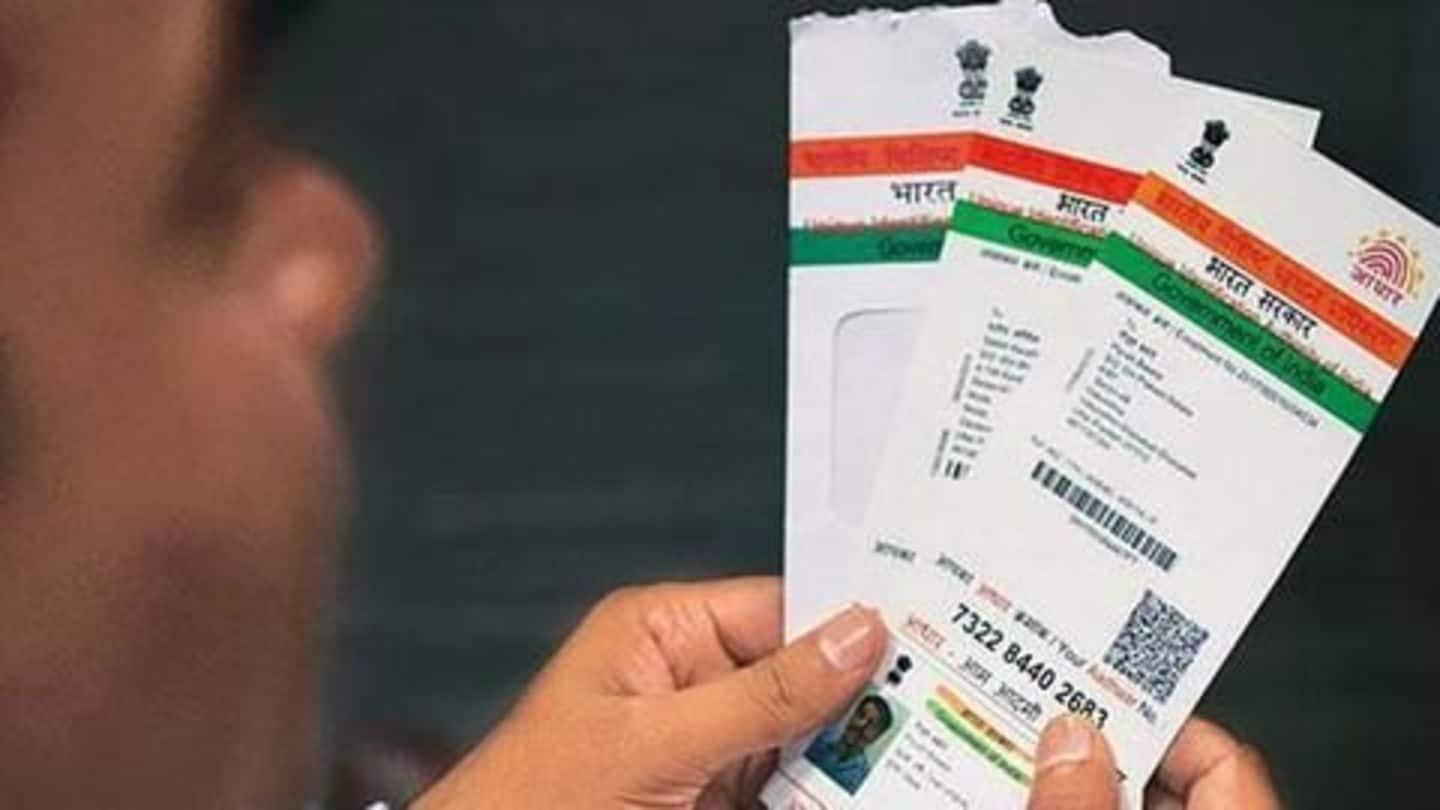Breaking myths about Aadhaar: What's true, what's not?
What's the story
The Modi-government has gradually extended the scope of Aadhaar and made it mandatory for various social welfare schemes, to the criticism of many.
Many are unhappy with the move, which the Centre undertook despite a Supreme Court ruling prohibiting from making it mandatory.
Before criticizing it, however, one needs to know what Aadhaar exactly is, and what it's not. We break some myths here.
Uniqueness
Myth: Aadhaar is a 'unique' identity card
The Aadhaar is a number associated to an applicant. Unlike voter ID and PAN cards, it has no security features attached to it.
One can easily download and print multiple copies of the document, lessening the authenticity level of the document.
Yet, it is accepted at several places, including by airlines, as valid proof of identity.
Residence
Myth: Aadhaar is a proof of residence
The address column in the Aadhaar application is optional; moreover, one does not need to furnish proof of residence, which means an applicant can provide any address since it won't be verified by the UIDAI (Unique Identification Authority of India) authorities anyway.
However, banks still ask for Aadhaar for the 'Know Your Customer' verification.
Citizenship
Myth: Aadhaar is a proof of citizenship
The Aadhaar (Targeted delivery of financial and other subsidies, benefits and services) Bill, 2016, states explicitly that "Aadhaar number (is) not evidence of citizenship or domicile, etc".
But, anyone who has lived in India for at least 182 days is eligible for Aadhaar.
And, the passport authority says Aadhaar will "expedite processing of passport applications"; the passport then becomes a valid proof of citizenship.
Information
Myth: Identity theft can be eliminated using biometrics
Though Aadhaar's biometric techniques have been hailed as revolutionary, one needs to remember that such process have their drawbacks. Fingerprint scanning, for example, is inaccurate in about 5% cases worldwide, and 15% in India, where manual labour is widely prevalent.
Privacy
Myth: Aadhaar is a massive violation of privacy
Critics have slammed the Aadhaar as an invasion of privacy, alleging the government maintains a central database of citizens' details.
However, one needs to remember that the government already has access to such information through other documents, including passports, PAN cards, driving licences, voter IDs and more.
Details of Aadhaar account holders cannot legally be shared with third parties without their consent.
Expenses
Myth: Expenses incurred will be tremendous
Contrary to complaints of 'high cost' by many critics, the World Bank has reported that India is saving $1 billion annually by using Aadhaar, due to the reduced scope for corruption in public services.
Earlier, the National Institute of Public Finance and Policy found that integrating Aadhaar with social schemes like MNREGA, PDS and LPG subsidies would bring "substantial benefits".
